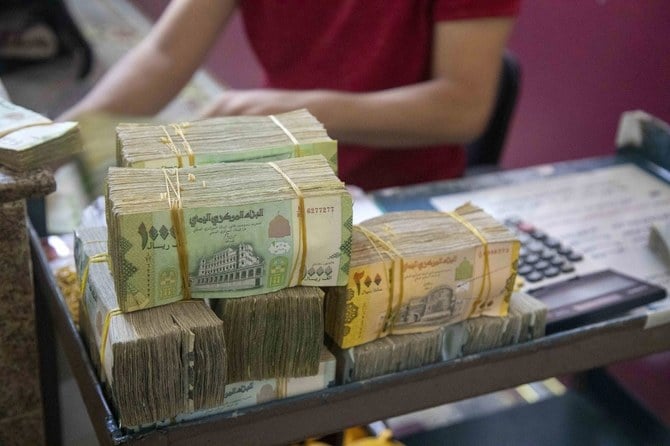
AFP
31-08-2025 at 8 PM Aden Time
|
|
Aden (South24 Center)
The Yemeni currency in Aden surged to approximately 1,065 rials per US dollar on Sunday afternoon (August 31), compared to Saturday's trading range of 1,617-1,632 rials, continuing the gains that began in early August following its mid-July slump to beyond 2,900 rials.
In the case of the Saudi riyal too, the Yemeni currency gained considerably, going at between 280-320 Yemeni rials, in a much better showing than on Saturday, when it traded at 425-428 rials. In mid-July, the Yemeni rial had slumped to nearly 760 rials in trading with the Saudi currency. The data is according to consistent accounts from local exchange dealers and previous data published by ‘South24 Center’.
This improvement coincides with government and monetary measures including the prohibition of foreign currency use in domestic transactions, effective August 11, and the launch of the National Committee for Import Regulation and Financing on August 10 to process currency requests only through approved banks and exchange companies.
The Central Bank mandated that banks and exchange companies meet importers' needs exclusively through the approved mechanism while prohibiting external sales, and requiring daily surrender of foreign currency surpluses to the banking sector. In late July, the government ordered the centralization of public accounts at the Central Bank and the closure of all accounts held at commercial banks and exchange companies.
Banking sources indicate that restrictions on speculation and import financing through parallel markets has reduced the artificial demand for foreign currency, thereby rapidly impacting exchange rates. The Central Bank has not disclosed details regarding the direct intervention volumes or supporting reserves.
Despite the rial's appreciation, retail stores and suppliers maintained significantly elevated prices for goods and services, raising citizen concerns about prolonged high prices without government oversight.
Economists told South24 that sustaining these gains depends on strict implementation of decisions, availability of foreign currency flows to cover imports, and maintaining official payment channels. They warn that any regulatory laxity could revitalize parallel market activity.
The government indicates that current measures form part of a broader plan to reform the financial sector and promote electronic payments, alongside regulatory actions in vital sectors. No timelines have been announced for price reductions corresponding to the currency improvement.
As consumers monitor whether the rial's strength will translate to reduced living costs, the Yemeni rial in government-controlled areas continues its sharp recovery amid both concerns and hopes.